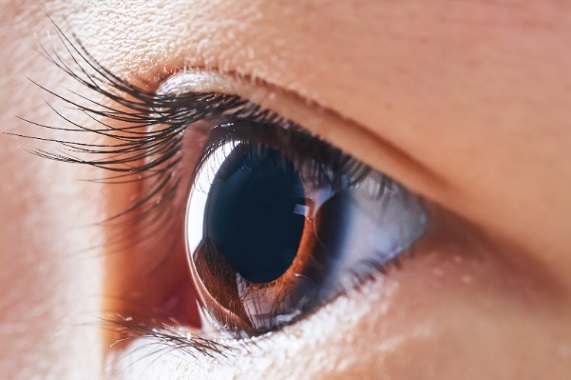Nikhil Prasad Fact checked by:Thailand Medical News Team Jan 22, 2025 2 months, 3 weeks, 2 days, 9 hours, 20 minutes ago
Medical News: A recent clinical case study conducted by researchers from Xi’an BRIGHT Eye Hospital Group Co Ltd and The Second Affiliated Hospital of Air Force Military Medical University in Xi’an, Shaanxi, China, sheds light on a rare yet significant ocular complication associated with COVID-19. The report, which examined two cases of macular damage linked to the novel coronavirus, contributes valuable insights into its pathophysiology and treatment strategies. This
Medical News report delves into the key findings and implications of this study.
 Doctors in China Warn That COVID-19 Can Cause Macular Damage
Doctors in China Warn That COVID-19 Can Cause Macular Damage
The researchers investigated two patients - a 15-year-old male and a 28-year-old female - who exhibited sudden-onset visual impairment shortly after contracting COVID-19. Both individuals were diagnosed with distinct macular damage, one with acute macular neuroretinopathy and the other with extensive macular lesions. Through advanced imaging techniques like optical coherence tomography (OCT) and fundus photography, the researchers documented the unique characteristics and progression of the damage. This study serves as a critical reminder of the potential ocular impacts of COVID-19, emphasizing the need for comprehensive patient care.
Case Summaries
Case 1: Acute Macular Neuroretinopathy in a 15-Year-Old Male
The first patient, a previously healthy teenager from Xi’an, presented with sudden visual impairment characterized by black shadows in the central field of vision. Diagnostic evaluations revealed triangular neural epithelial edema in the macula. OCT imaging showed high-density shadows between the neuroepithelial and pigment epithelial layers. Following systemic corticosteroid therapy (30 mg oral prednisone acetate daily for five days), his visual acuity improved significantly. However, the ellipsoid zone in the macular area remained disrupted, indicating residual damage despite treatment.
Case 2: Extensive Macular Lesions in a 28-Year-Old Female
The second patient, a young woman with no prior health issues, experienced blurred vision and central black shadows for 10 days. Her condition worsened before seeking medical attention. Wide-angle fundus photography and OCT revealed large oval lesions in the macula of both eyes. She was prescribed a three-day course of 30 mg oral prednisone acetate daily. Although partial symptomatic improvement was observed, residual abnormalities persisted, highlighting the chronic nature of the damage.
Key Findings from the Study
The findings of this investigation provide a deeper understanding of the mechanisms and clinical manifestations of COVID-19-related macular damage. The study revealed the following:
-Mechanisms of Damage: COVID-19-induced macular damage involves a complex interplay of inflammatory, vascular, and neural factors. Elevated inflammatory cytokines like interleukin-6 (IL-6) and tumor necrosis factor-alpha (TNF-α) contribute to retinal inflammation, endothelia
l dysfunction, and vascular leakage, resulting in macular edema and ischemia. Additionally, the hypercoagulable state associated with COVID-19 exacerbates microvascular thrombosis in the retina.
-Imaging Features: OCT imaging in both cases showed distinctive patterns of retinal damage. The high-density shadows and disrupted ellipsoid zones in the macula are consistent with inflammatory and vascular injury, confirming the multifactorial nature of the pathology.
-Treatment Outcomes: Both patients responded positively to systemic corticosteroid therapy, with significant improvement in visual symptoms and stabilization of macular lesions. However, residual abnormalities on imaging underscore the potential for long-term sequelae, necessitating extended monitoring and follow-up care.
-Comparative Analysis with Other Retinal Conditions: Unlike conditions such as central retinal artery occlusion or acute macular neuroretinopathy, COVID-19-related macular damage involves broader inflammatory and vascular mechanisms. This distinction highlights the unique impact of COVID-19 on retinal health.
Implications and Future Directions
The study highlights several critical aspects for medical practitioners and researchers:
-Early Detection and Intervention: Prompt diagnosis and treatment of COVID-19-related macular damage are essential to prevent irreversible vision loss. Systemic corticosteroid therapy has shown promise in alleviating symptoms and stabilizing retinal damage.
-Long-Term Monitoring: Given the potential for chronic visual impairment, patients with COVID-19-related ocular complications require ongoing follow-up to monitor for progression or recurrence of retinal damage.
-Need for Larger Studies: While this study provides valuable insights, the small sample size of two cases limits the generalizability of the findings. Larger, multicenter studies are needed to validate these results and establish standardized treatment protocols.
-Exploration of Alternative Therapies: Further research is warranted to evaluate the efficacy of other treatment modalities, such as anti-inflammatory or anti-angiogenic agents, in managing COVID-19-related macular damage.
Conclusion
COVID-19 continues to unveil its multifaceted impact on human health, extending beyond systemic complications to include rare but significant ocular manifestations. The cases of macular damage presented in this study emphasize the importance of a multidisciplinary approach to managing COVID-19 patients. Through detailed clinical evaluations, advanced imaging, and targeted therapies, healthcare professionals can mitigate the long-term visual sequelae of this condition.
The findings underscore the need for vigilance among ophthalmologists and primary care providers in identifying and addressing COVID-19-related ocular complications. By advancing our understanding of the pathophysiology and treatment of these conditions, we can improve patient outcomes and enhance the overall quality of care.
The study findings were published in the peer-reviewed journal: Medicine.
https://journals.lww.com/md-journal/fulltext/2025/01170/case_series_on_2_cases_of_macular_damage_caused_by.1.aspx
For the latest COVID-19 News, keep on logging to Thailand
Medical News.
Read Also:
https://www.thailandmedical.news/news/covid-19-impact-on-ocular-surface-health
https://www.thailandmedical.news/news/covid-19-causes-long-term-retinal-health-issues
https://www.thailandmedical.news/news/acute-angle-closure-cases-rise-after-covid-19-in-china
https://www.thailandmedical.news/news/sars-cov-2-can-infect-the-retinal-pigment-epithelium-and-impair-vision-over-time
https://www.thailandmedical.news/news/serpiginous-choroiditis-a-rare-and-potentially-blinding-eye-condition-surfaces-as-a-result-of-covid-19-infection
https://www.thailandmedical.news/news/visual-complications-linked-to-covid-19-infection
